Results from Practice Survey
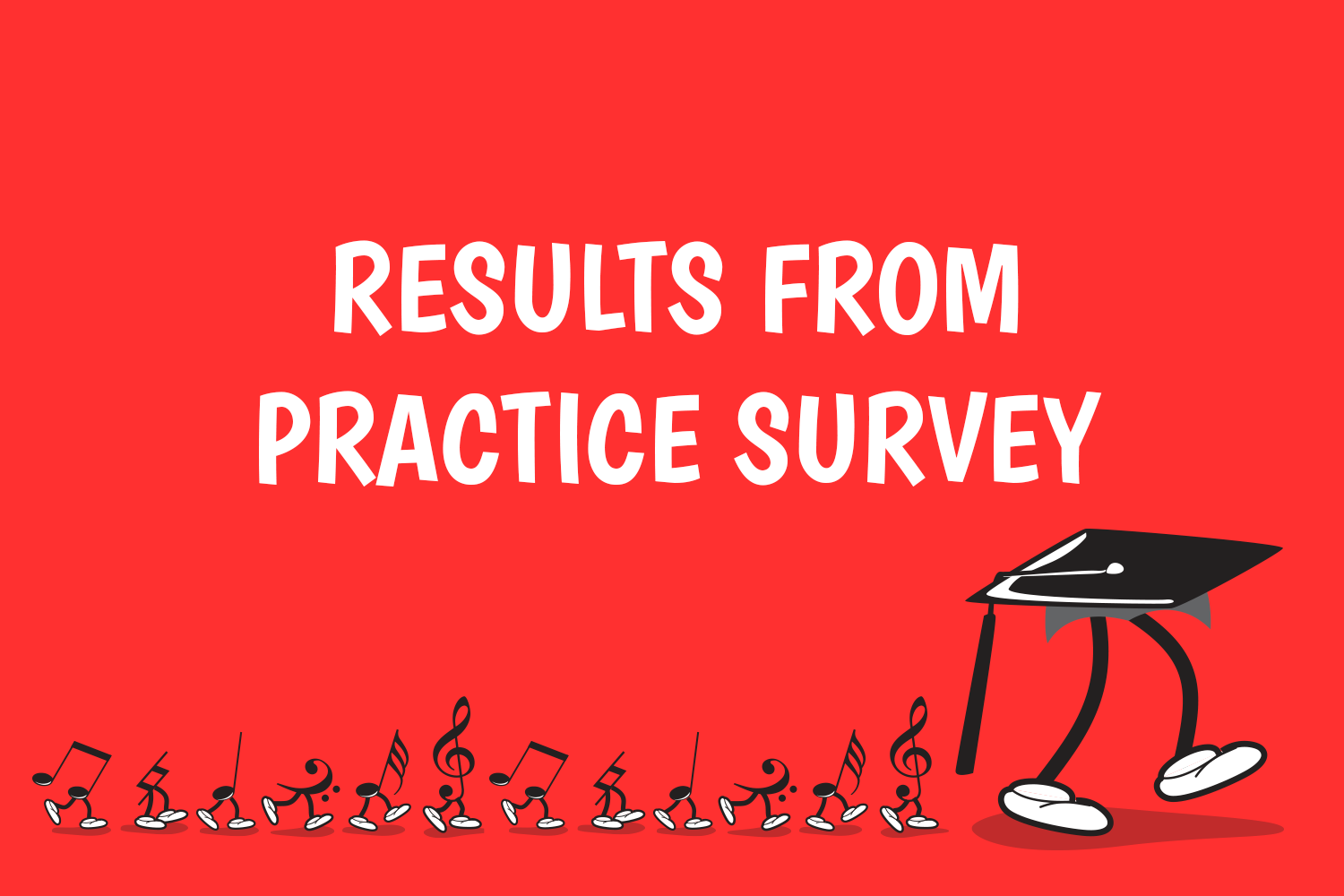
Well, the results of the practice survey are in, and they are very interesting!
There were just five questions in the survey (each phrased slightly differently, depending on the answer to question 1):
1. Are you a student/teacher/parent?
2. Did you practice much over the holidays?
3. Were you rusty at the beginning of term?
4. Did you take long to get back into the swing of things?
5. Did you recommend ways to get into a good practice routine?
A whopping 73% of all responses were from teachers, probably because these issues are at the forefront of their daily lives, but also due to the fact that my database is mostly made up of teachers! The graphs and pie charts following show the survey results as percentages of the total responses; so it’s worth remembering that whilst 50% of teachers comes to a total number of about 120, 50% of students only represents about 20 responses.
The answers to questions 3 and 4 were pretty consistent amongst the 3 groups: the majority of students were rusty at the beginning of term but everyone got back into it fairly quickly.
The answers to questions 2 and 5 were far more disparate!
First, the results about practising over the holidays.
From the teachers:
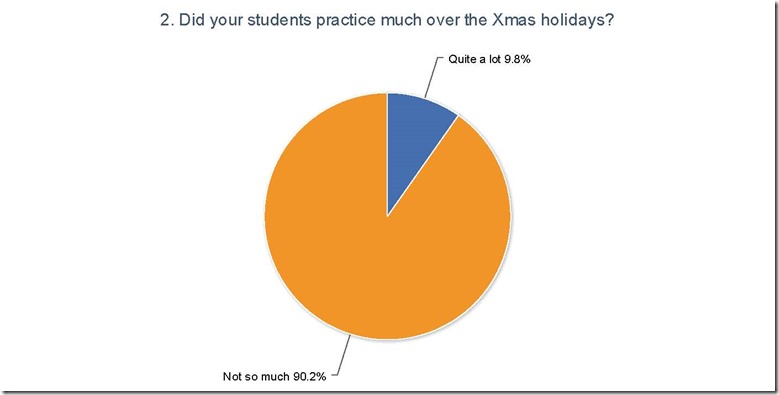
From the parents:
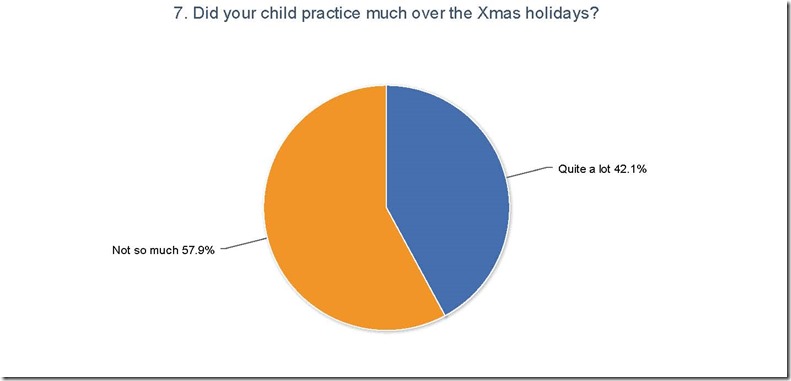
From the students:
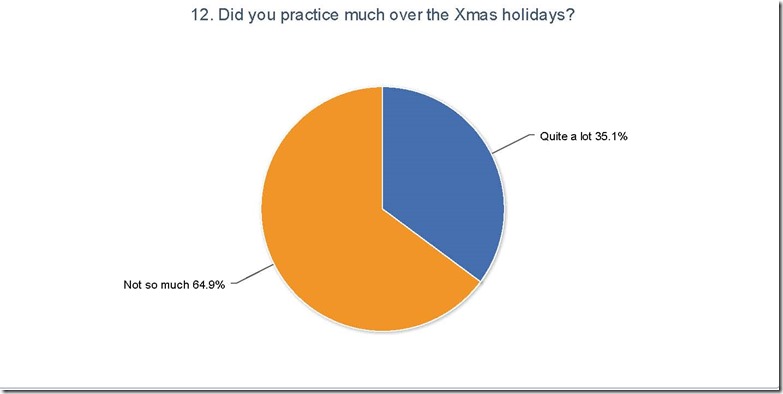
So… the students’ and parents’ perspective of holiday practice is very different to the teachers’! I put this down to the fact that during holidays family life takes over and even if only a small amount gets done, this seems like a lot. Upon returning to lessons, however, it suddenly seems very little!
And now to an even more interesting result: that of recommending ways to get into a good practice routine.
From the teachers:
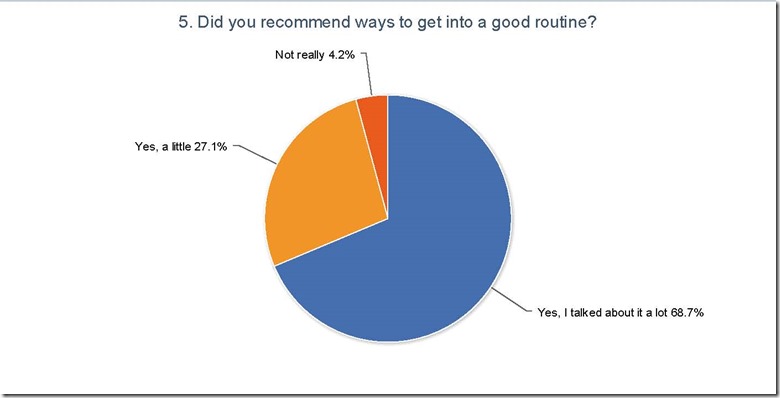
From the parents:
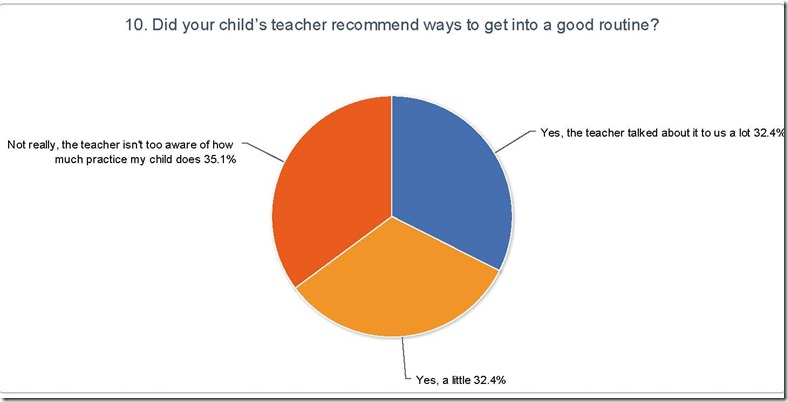
From the students:
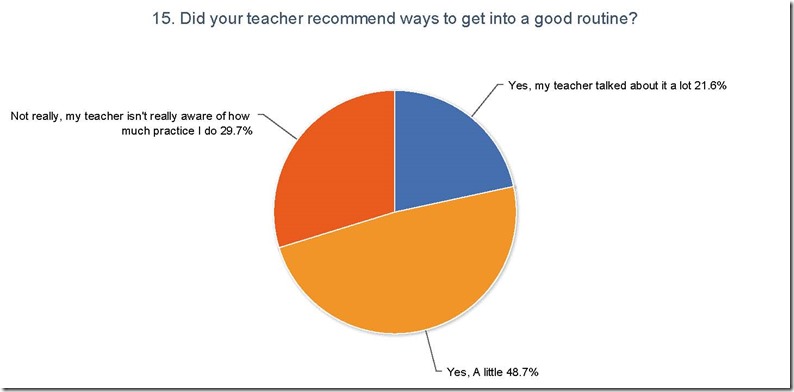
Here we have a rather large discrepancy.
Whilst the overwhelming majority of teachers said yes they talked about practice routines a lot, and only a tiny 4% of teachers said they didn’t really talk about it at all with their students, a whopping 35% of parents and 30% of students surveyed said that the teacher doesn’t mention practice routines and is not very aware of how much they practice.
Perhaps the teacher is trying to educate the student about practice, but the parent isn’t there and/or the student isn’t listening, and therefore thinks the teacher doesn’t talk about this?
This is a communication issue. Teachers are addressing it but the parents’ and students’ perception is that we don’t really know what’s going on at home. Teachers should be aware that whilst think they talk about practice a lot, it needs a great deal more follow up. We need to talk about it every lesson, and make sure the parent is aware that we are asking!
The final part of the survey was a space to write everyone’s best practice tip. Most people completed this part, which was great!
I’ve put together a graph and description of the most common ‘best practice tips’ that came in from each group.
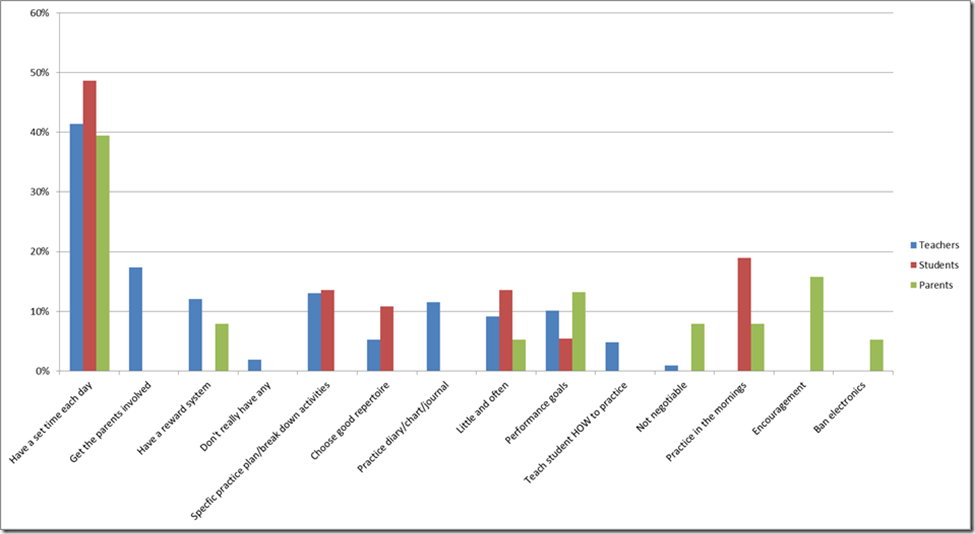
Interesting facts about the ‘best practice tips’:
· All three groups surveyed seem to agree that a set time each day is the best way to establish good practice. This was by far the most common ‘best practice tip’ given.
· The second biggest tip from the teachers was to get the parents involved
· The second biggest tip from the students was to practice in the mornings (something the parent group also commented on)
· The second biggest tip from the parents was to encourage and praise their children (note: not reward or bribe!)
· In addition to having a set practice time each day, all three groups surveyed had the following practice tips in common:
Practice little and often
Have performance goals (with specific suggestions such as concerts, exams, eisteddfods, or even just a soiree for family and friends)
· Two common practice tips from teachers and students were:
Have a specific practice plan
Choose enjoyable and appropriate repertoire.
(Interestingly, the parent group had nothing to say about either of these things.)
· The teacher group was very big on a practice chart or journal, but the students and parents did not mention them.
· The student group was the only group that did not mention rewards! How ironic…
Conclusion
Whilst much of the feedback from this survey was as expected and was fairly consistent and as expected, a couple of important factors stand out.
Firstly, a teacher’s perception of how much practice is being done at home can be very different from that of the students and parents, which means there needs to be more definitive explanation from teachers as to what constitutes ‘a lot’ of practice or ‘not much’ practice. Expectations need to be managed in this regard, with teachers being fully aware of (and as much as possible sympathetic to) other extracurricular commitments and access to instruments over holiday periods.
Secondly, much more communication is needed between teacher, student and parent. Teachers need to be enquiring about their students’ practice routines all the time, not just in passing and not just once at the beginning of the term. Parents should participate in this process whenever possible, either by attending the lesson or reading the teacher’s notes, and certainly by supporting the requests of the teacher through sensible time management. Students will in turn grasp the importance of a practice routine, and as a result of feeling supported will be more easily able to communicate their needs to their teacher, such as preferences for certain repertoire or asking for help in ways to practice.
Through managing expectations and more communication and support, these discrepancies in perception can be ironed out and the teacher-parent-student relationship will function far more effectively… resulting in a more enjoyable and fulfilling music education for all.
